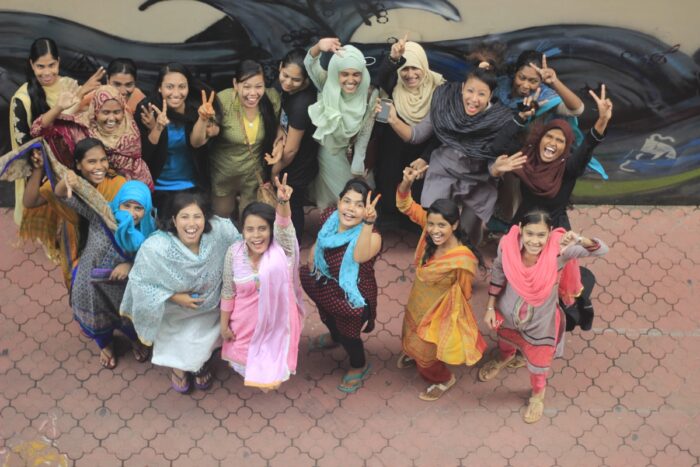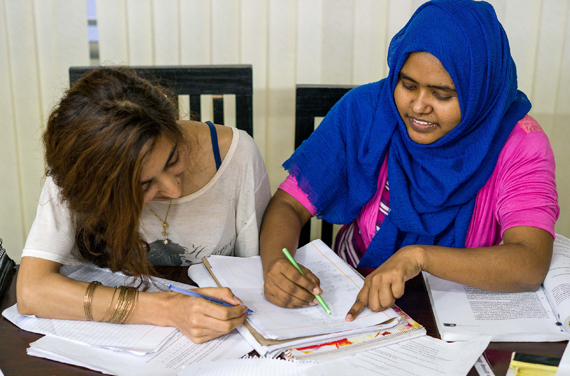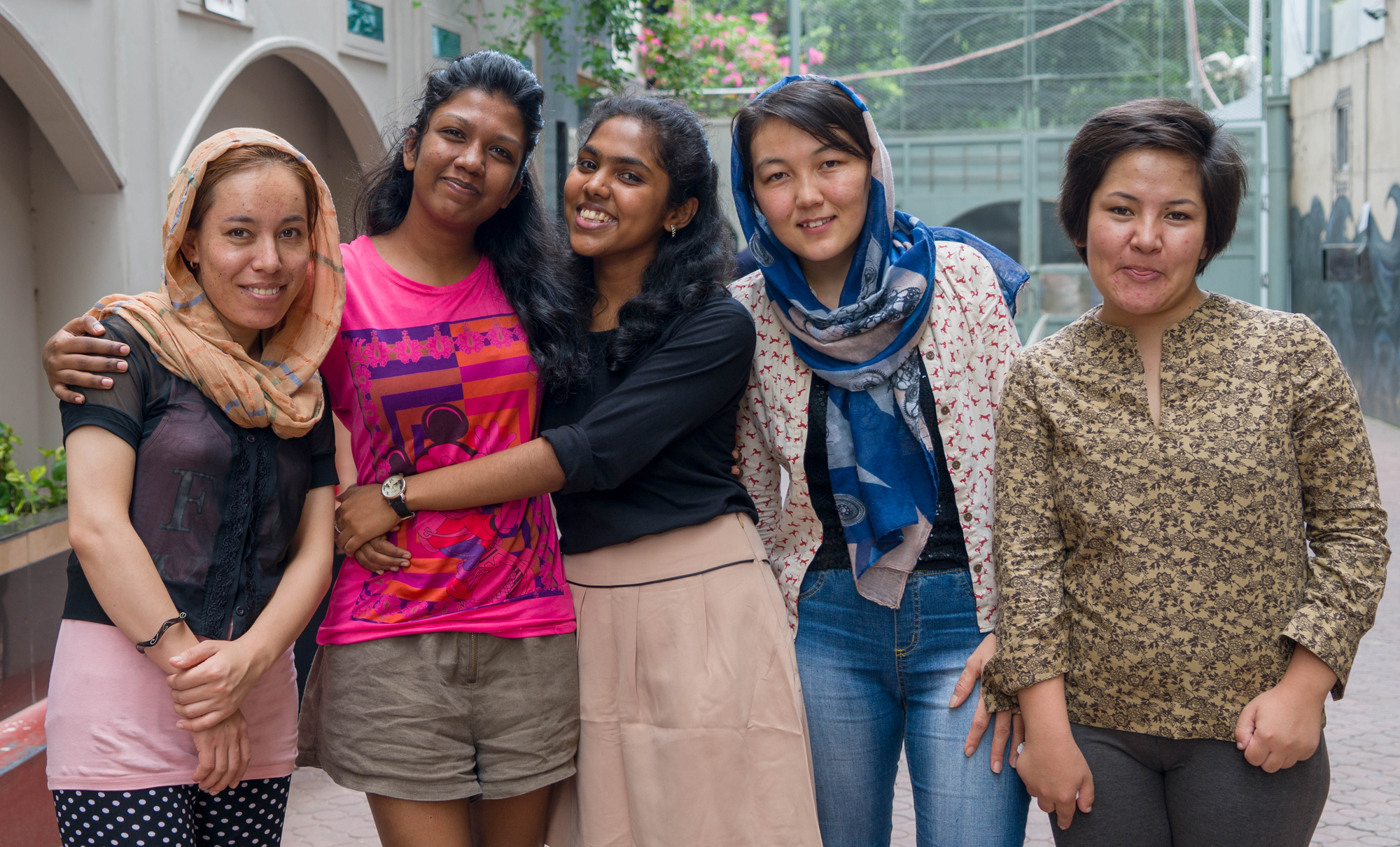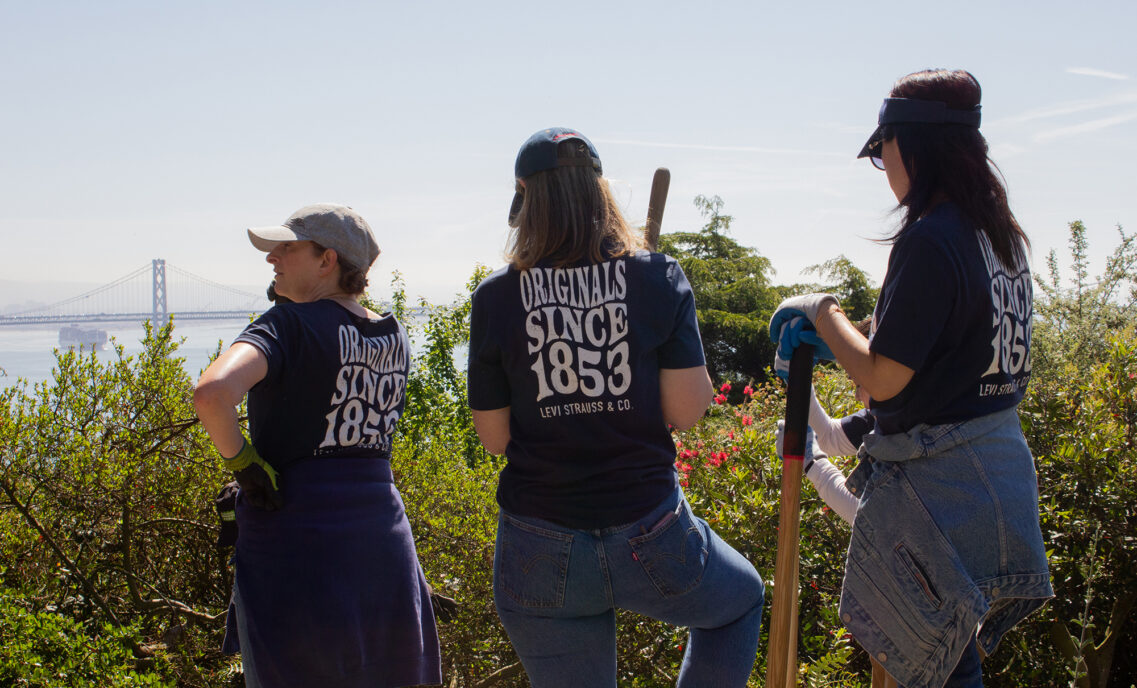Despite decades of progress, women around the globe still face persistent disparities on a range of issues. The Levi Strauss Foundation has supported women’s empowerment and invested in female apparel worker well-being for over 20 years. Below we highlight the work of the Asian University for Women, a grantee of ours since 2016, and their Pathways to Promise program.
Research indicates that investing in women and providing them with opportunities to better their health, education and well-being have effects far beyond a single individual. In fact, a woman multiplies the impact of an investment made in her future by extending benefits to the world around her, creating a better life for her family and community.
Pathways to Promise allows for female apparel workers to take their future into their own hands, often for the first time. The academic and leadership development program at the Asian University for Women in Bangladesh is unlocking the potential of women working in garment factories. The program affords a cohort of female students with a scholarship to a five-year liberal arts and science education culminating in a bachelor’s degree, and provides women with professional and leadership training, transforming their potential into reality. Scholars within the program come from low-income and marginalized communities, and many are apparel workers.

“I couldn’t believe there was an opportunity to go to University,” said Juma, a young woman enrolled in Pathways to Promise and a Levi Strauss Foundation Scholar. “I belong to a poor family; no one from my family or village believed that anyone could be given this kind of chance. I didn’t listen and I went.”
By developing their own leadership potential through the program, they are then able to alter the perceptions of what female apparel workers can achieve and increase their own agency.
Helping Women in the Apparel Industry Grow
There are more than 3.6 million apparel workers in Bangladesh, and nearly three million of them are women. While women outnumber men 60 to 1, most factory managers and owners are men.
For these women, the apparel industry was an important entry point into the labor force; however, the positions they often end up in are typically lower level where they lack bargaining and decision-making power, often experience gender discrimination, and have difficulty advancing their careers beyond the sewing lines and factory floors.
“With no education, how will they [women] know about their rights? What is their capacity to work in their society?” said Roksana, another member of Pathways to Promise and Levi Strauss Foundation Scholar. “I am the first woman in my village to go to a University. I am trying my best to do something. I will work for women, then they will understand that girls can do anything if they can study.”

While some Pathways to Promise graduates from previous cohorts have gone on to intern at the World Bank and the United Nations, others have returned to their factories to take on managerial roles and to change the status quo for fellow female apparel workers. The COVID-19 pandemic, however, has taken a serious toll on their ability to receive a full education. There is no electricity in Juma’s village, for example, which means that there is no Wi-Fi or internet to complete her studies. In Roksana’s village, there is electricity but no Wi-Fi, and often Roksana must travel from her home at night to try and find an area with reception, using only a flashlight. Faced with the inability to connect to their virtual classes, the women find themselves nervous about their GPAs and their ability to graduate — a dream they are fighting to see through.
Despite these hardships, the women remain committed to obtaining an education and giving back to their families and communities.
“There are so many people that don’t get an education, or don’t give their daughter the ability to go to college. Women are the most important part of society,” said Meherun, another Levi Strauss Foundation Scholar in the Pathways to Promise program. “A girl who is educated knows what is good and right for her community.”
The Foundation is proud to support the Asian University for Women and the Pathways to Promise program as it continues to demonstrate the importance of investing in women and developing women leaders.







